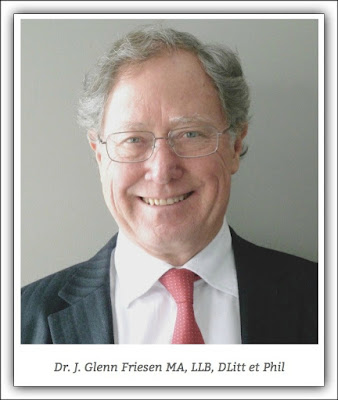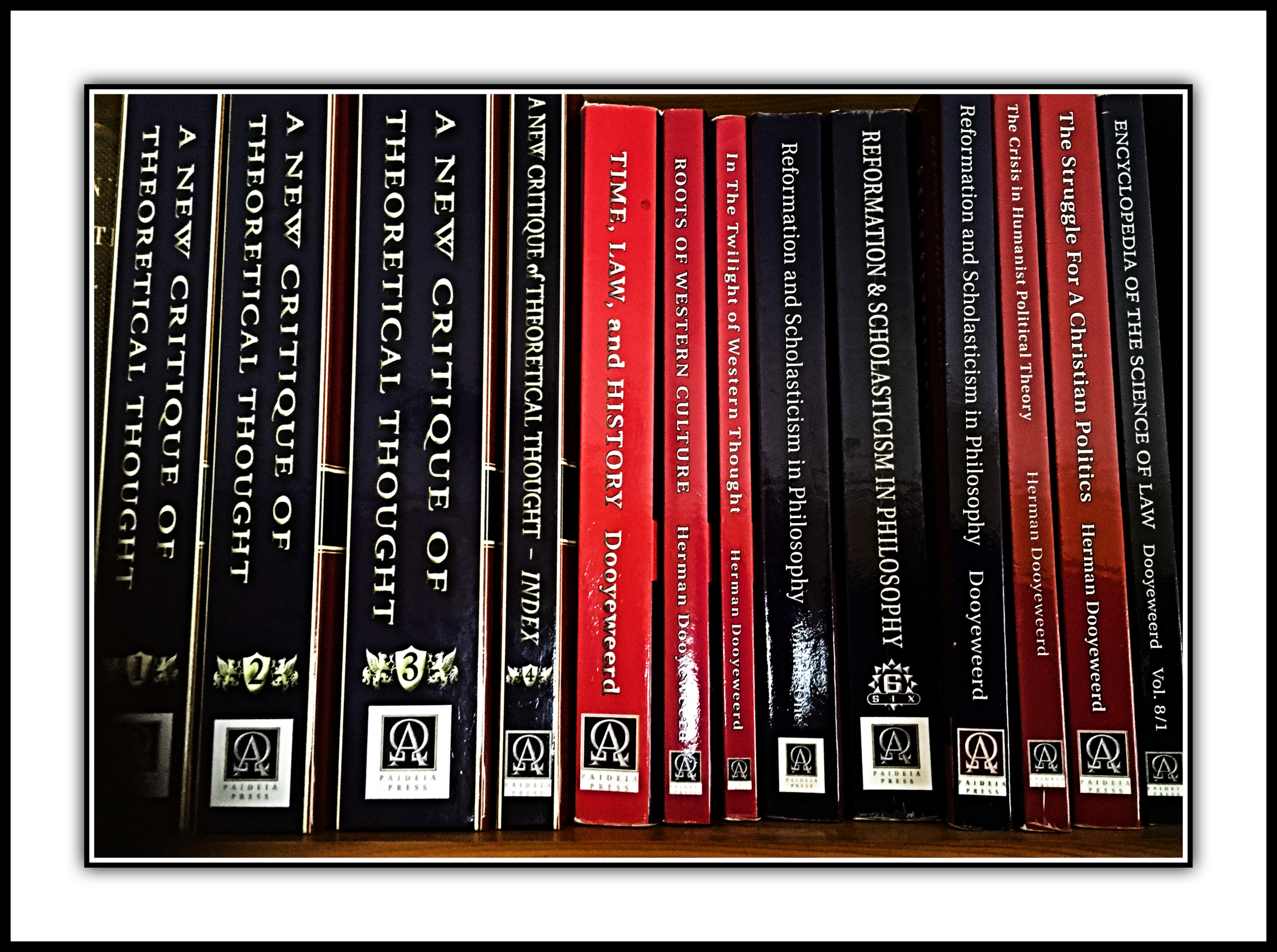This view has been explained in an unsurpassable and pregnant way in the first chapter of the first book of CALVIN's Institutio. It is the only purely Biblical view and the alpha and omega of any truly Christian epistemology. Theoretical truth, limited and relativized by the temporal horizon, is in every respect dependent on the full super-temporal Truth. If we hypostatize [absolutize] theoretical truth, it is turned into a lie. For there does not exist a self-sufficient partial truth. We cannot truthfully know the cosmos outside of the true knowledge of God. But like all human experience in this earthly dispensation, our knowledge of God, although directed to the absolute Truth, is also restricted and relativized by (but not at all to) our temporal cosmic existence.
The restriction of our human experience of the religious [ultimate, supratemporal] fulness of meaning by time is no restriction to time.
This means that in the Christian experience the religious [ultimate, supratemporal] fulness of meaning remains bound up with temporal reality. Every spiritualistic view which wants to separate self-knowledge and the knowledge of God from all that is temporal, runs counter to the Divine order of the creation. Such spiritualism inevitably leads to an internally empty idealism, or to a confused kind of mysticism, in spite of its own will or intentions.
In the order of this life - that of the life beyond is still hidden from us as to its positive nature - all human experience remains bound to a perspective horizon in which the transcendent light of eternity must force its way through time. In this horizon we become aware of the transcendent fulness of the meaning of this life only in the light of the Divine revelation refracted through the prism of time. For this reason Christ, as the fulness of God's Revelation, came into the flesh; and for this reason also the Divine Word-revelation came to us in the temporal garb of human language.
But if our experience were limited to our temporal functions of consciousness, or rather to an abstractum taken from our temporal complex of experiential functions, as is taught by the critical and the positivistic epistemologies, it would be impossible to have true knowledge of God, or of ourselves, or of the cosmos. And in the apostasy in which falsehood (and not truth) rules, we have no such knowledge. This also applies to the πρῶτον ψεῦδος [Proton Pseudos -"first lie": first false premise in a deduction] in which the entire epistemology of immanence-philosophy is founded. For it is based on the self-destructive hypostatizing [absolutizing] of the theoretical synthesis of meaning, and on a fundamental misconception of the structure of human experience. In the transcendent religious subjective a priori of the cosmic self-consciousness the whole of human cognition is directed either to the absolute Truth, or to the spirit of falsehood. In this cosmic self-consciousness we are aware of temporal cosmic reality being related to the structure of the human selfhood qua talis.
In its universally valid law-conformity this structure is essentially the structure of a religious [supratemporal] community into which the individual ego has been integrated. Any theoretical displacement of the human selfhood from this central position in experience is due to the lack of a radical philosophical self-reflexion.
But man cannot attain to true self-knowledge without true knowledge of God, which cannot be gained outside of the Divine Revelation in Christ.
At this point, many a reader who has taken the trouble to follow our argument will perhaps turn away annoyed. He will ask: Must epistemology end in a Christian sermon or in a dogmatic statement? I can only answer by means of the question as to whether the dogmatic statement with which the supposed autonomous epistemology opens, viz. the proclamation of the self-sufficiency of the human cognitive functions, has a better claim to our confidence as far as epistemology is concerned.
Our philosophy makes bold to accept the ‘stumbling block [obstacle] of the cross of Christ’ as the corner stone of epistemology. And thus it also accepts the cross of scandal, neglect and dogmatic rejection. In the limitation and weakness of the flesh, we grasp the absolute truth in our knowledge of God derived from His revelation, in prayer and worship. This knowledge in the full sense of the word contains the religious [ultimate, supratemporal] principle and foundation of all true knowledge, and primarily has a religious enstatic ["placed within the concrete, individual reality of things and events"] character. It no more rests primarily on a theoretical meaning-synthesis than does the cosmic self-consciousness.
The knowledge about God in which religious [ultimate, supratemporal] self-knowledge is implied, is not primarily gained in a so-called theological way. That which is very inadequately called ‘theology’, is a theoretical knowledge obtained in a synthesis of the logical function of thought and the temporal function of faith. It is a knowledge which itself is entirely dependent on the cosmonomic Idea from which the thinker starts.
The true knowledge of God and of ourselves is concerned with the horizon of human experience and therefore also with that of theoretical knowledge. It rests on our trustful acceptance of Divine revelation in the indissoluble unity of both its cosmic-immanent sense and its transcendent-religious meaning; an acceptance with our full personality and with all our heart. It means a turning of the personality, a giving of life in the full sense of the word, a restoring of the subjective perspective of our experience, enabling us to grasp reality again perspectively in the light of Truth. This does not mean a kind of mystical supernatural cognitive function, but it refers to the horizon that God made for human experience in the cosmic order created by Him. The subjective perspective has been obfuscated by sin and distorted and closed to the light of the Divine Revelation.
True self-knowledge opens our eyes to the radical corruption of fallen man, to the radical lie which has caused his spiritual death. It therefore leads to a complete surrender to Him Who is the new root of mankind, and Who overcame death through his sufferings and death on the cross. In Christ's human nature our heavenly Father has revealed the fulness of meaning of all creation [Ephes. 1:10], and through Him according to His Divine nature, God created all things as through the Word of his power [Hebr. 1:2,3].
The primary lie obfuscating the horizon of human experience is the rebellious thought that man could do without this knowledge of God and of himself in any field of knowledge, and could find the ultimate criterion of truth in ‘autonomous’, i.e. absolutized theoretical thought.
(Extract from Herman Dooyeweerd: A New Critique of Theoretical Thought, Vol 2, pp 560-563.)
NB: FREE PDF DOWNLOADS of this and other books by Herman Dooyeweerd are available HERE





